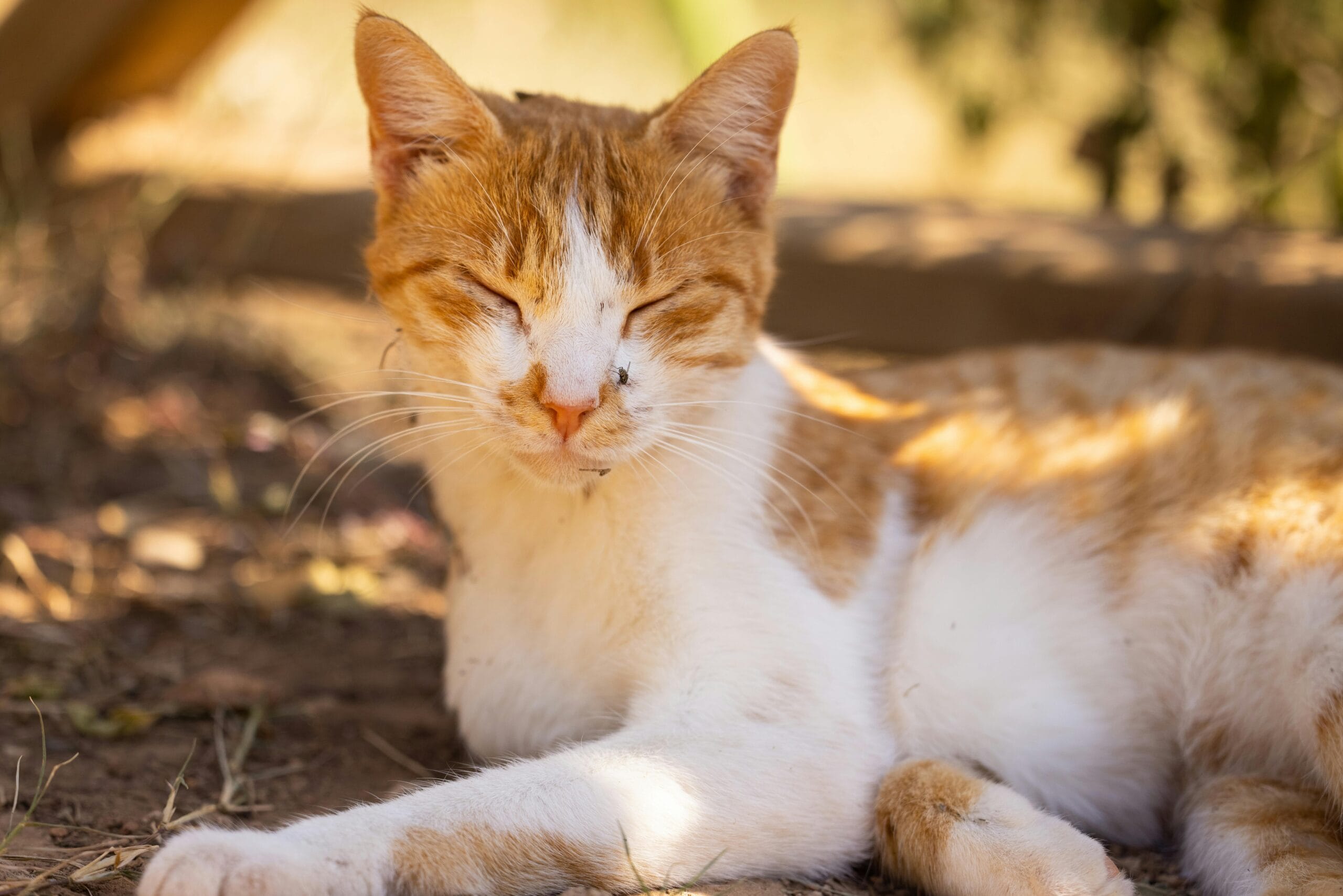Can Cats Take Cerenia? Find out about Cerenia for cats vomiting & learn the correct Cerenia dosage for cats. Get expert advice on treating feline nausea & vomiting! Read now!
Can Cats Take Cerenia? A Comprehensive Guide
Is your feline friend suffering from persistent vomiting? Finding the right treatment can be stressful, and understanding the options available is crucial. One medication frequently discussed is Cerenia. This article will delve into the question, Can Cats Take Cerenia?, exploring its uses, dosages, potential side effects, and more. We’ll also address the crucial topic of Cerenia for Cats Vomiting and provide information on Cerenia Dosage Cats to help you navigate this important decision for your beloved pet.
Understanding Cerenia and its Use in Cats
Cerenia (maropitant citrate) is an antiemetic medication, meaning it’s designed to prevent vomiting and nausea. It works by blocking a specific receptor in the brain that triggers vomiting. This makes it a powerful tool in managing feline vomiting, a common problem that can stem from various underlying causes. While Cerenia is effective in managing the symptom of vomiting, it’s crucial to remember it doesn’t treat the underlying cause. A veterinarian’s diagnosis is essential to determine the root problem and ensure appropriate treatment. Just like you wouldn’t give your cat foods they shouldn’t eat like grapes or cherries, you should only administer medications under veterinary guidance.
Cerenia for Cats Vomiting: When is it Appropriate?
Cerenia for Cats Vomiting is often prescribed for acute or chronic vomiting. Acute vomiting is sudden and often triggered by a specific event, like eating something that upset their stomach, such as sardines (if not given in moderation), while chronic vomiting is persistent and may indicate an underlying health issue. Your veterinarian will assess your cat’s condition, considering factors like the frequency, severity, and duration of vomiting, as well as other symptoms, to determine if Cerenia is the right choice. It’s important to be mindful of what you feed your cat. For example, while some cats might tolerate lettuce, others might have digestive issues.
Cerenia might be prescribed in cases of:
- Motion sickness
- Post-operative nausea and vomiting
- Vomiting associated with certain illnesses (e.g., kidney disease, pancreatitis)
- Idiopathic vomiting (vomiting of unknown cause)
Cerenia Dosage Cats: What Your Vet Will Prescribe
Determining the appropriate Cerenia Dosage Cats requires a veterinary assessment. The dosage will depend on your cat’s weight and the specific condition being treated. Never attempt to calculate or administer Cerenia without explicit instructions from your veterinarian. They will take into account your cat’s overall health, including any other medications your cat is taking. For instance, certain medications might interact with Cerenia, potentially altering its effectiveness or causing adverse side effects. The vet will explain how to administer the medication correctly, whether orally or through injection, and how frequently to give it. Incorrect dosing can lead to ineffectiveness or harmful side effects.
Possible Side Effects of Cerenia in Cats
While generally well-tolerated, Cerenia can cause side effects in some cats. These are usually mild and temporary. However, it’s crucial to monitor your cat closely and report any unusual behavior or symptoms to your veterinarian immediately. Common side effects may include:
- Lethargy
- Loss of appetite
- Diarrhea
- Changes in behavior
Rarely, more serious side effects can occur. These require immediate veterinary attention.
Alternatives to Cerenia for Cat Vomiting
Cerenia isn’t the only medication used to treat vomiting in cats. Your veterinarian might consider alternative options depending on the underlying cause of the vomiting and your cat’s individual needs. These might include other antiemetics or medications targeting the specific condition causing the vomiting. Always discuss available options with your veterinarian to determine the best course of action for your cat’s health. For example, if you’re considering alternative dietary options, make sure they’re appropriate for your cat’s needs – something like almond milk might not be suitable.
The Importance of Veterinary Consultation
It’s crucial to emphasize the importance of consulting with your veterinarian before administering any medication to your cat, including Cerenia. They can accurately diagnose the underlying cause of your cat’s vomiting, determine if Cerenia is appropriate, and prescribe the correct dosage. Improper use of medication can be harmful to your cat’s health. A veterinarian can also help rule out serious medical conditions that might be causing the vomiting, ensuring prompt treatment.
Frequently Asked Questions about Cerenia and Cats
Q: Can I buy Cerenia for my cat over-the-counter?
A: No. Cerenia is a prescription medication and can only be obtained through a veterinarian.
Q: How long does it take for Cerenia to work?
A: The effects of Cerenia usually become apparent within a few hours of administration.
Q: What should I do if my cat has an adverse reaction to Cerenia?
A: Contact your veterinarian immediately if you notice any adverse reactions.
Q: Can I give my cat a human dose of Cerenia?
A: Absolutely not. Human medications are not suitable for cats and can be very dangerous. Always use the dosage prescribed by your veterinarian.
Further Resources
For additional information on feline health and medication, you can consult these reputable resources:
ASPCA Animal Poison Control Center – This resource provides crucial information on pet poisoning and can offer guidance in emergency situations.
VCA Hospitals – This website offers a wealth of information on various pet health topics, including common feline illnesses.
Conclusion: Making Informed Decisions About Your Cat’s Health
Understanding whether Can Cats Take Cerenia, how it works, and the appropriate Cerenia Dosage Cats requires careful consideration and professional guidance. While Cerenia can be a valuable tool in managing feline vomiting, it’s vital to work closely with your veterinarian to ensure its safe and effective use. They can diagnose the root cause of the vomiting, prescribe the correct dosage, and monitor your cat for any potential side effects. Remember, your cat’s health is paramount, and making informed decisions based on veterinary advice is crucial.
Share Your Experience!
Have you used Cerenia for your cat? Share your experiences, including the dosage used, the results, and any side effects observed, in the comments section below! Your insights can be incredibly valuable to other cat owners facing similar situations. Help us build a supportive community for cat lovers by sharing your knowledge and experiences regarding Cerenia for Cats Vomiting and the appropriate Cerenia Dosage Cats

Frequently Asked Questions: Cerenia for Cats
- Can cats take Cerenia?
- Yes, Cerenia (maropitant) is a medication approved for use in cats to treat and prevent vomiting. Always consult your veterinarian before administering any medication to your cat.
- What is Cerenia for Cats Vomiting used for?
- Cerenia for Cats Vomiting is used to control and prevent nausea and vomiting in cats. It’s often prescribed for acute vomiting, chronic vomiting, and vomiting associated with motion sickness.
- Is Cerenia safe for cats?
- Cerenia is generally safe for cats when used as directed by a veterinarian. However, like all medications, it can have potential side effects. Your vet will assess your cat’s health to determine if it’s the right choice.
- What is the Cerenia Dosage Cats?
- The Cerenia dosage for cats varies depending on the cat’s weight and the reason for use. Your veterinarian will determine the appropriate dose and frequency. Never attempt to determine dosage on your own.
- How is Cerenia administered to cats?
- Cerenia is typically given orally, as a tablet or a liquid. Your vet will instruct you on the correct administration method.
- How long does it take for Cerenia to work?
- The effects of Cerenia usually begin within 1-2 hours of administration. However, the duration and effectiveness can vary between cats.
- Can I give my cat Cerenia without a vet’s prescription?
- No. Cerenia for cats requires a veterinary prescription. It’s crucial to consult your veterinarian before administering any medication to your cat to ensure its safety and efficacy.
- What are the side effects of Cerenia in cats?
- Potential side effects can include lethargy, decreased appetite, and diarrhea. Severe side effects are rare but should be reported to your veterinarian immediately.
- Can I give my cat human Cerenia?
- No. Human formulations of Cerenia are not appropriate for cats. Always use only the veterinary-approved formulation of Cerenia for cats.
- My cat is still vomiting after starting Cerenia. What should I do?
- If your cat’s vomiting persists despite taking Cerenia, contact your veterinarian immediately. There may be an underlying medical condition requiring further investigation and treatment.

Can Cats Take Cerenia? A Guide for Cat Owners
Cerenia is a medication commonly prescribed for cats experiencing nausea and vomiting. It’s important to understand that while Cerenia can be effective, it should only be administered under the guidance of a veterinarian. Never give your cat any medication, including Cerenia, without first consulting your vet. They can assess your cat’s specific condition and determine the appropriate dosage and treatment plan. Ignoring this advice could be harmful to your pet.
Before administering Cerenia or any other medication, be sure to accurately weigh your cat. Dosage is often calculated based on weight, and an incorrect dosage can lead to adverse effects. Always follow your veterinarian’s instructions precisely. Some cats may experience mild side effects such as drowsiness or decreased appetite. If you observe any unusual behavior or concerning symptoms after administering Cerenia, contact your vet immediately. For example, if your cat starts vomiting more frequently or displays unusual lethargy, it is vital to seek veterinary help immediately.
Remember that Cerenia addresses the symptoms of nausea and vomiting, not the underlying cause. Your vet will need to diagnose the root problem to provide effective long-term treatment. This might involve further testing or a change in diet. For instance, your cat’s vomiting might be linked to food intolerances. If your cat regularly consumes foods like sardines (https://themonstercat.com/can-cats-eat-sardines/), it is important to discuss the potential impact on their digestive health with your vet. Similar considerations apply to other foods; for example, you might want to check if your cat consumes lettuces (https://themonstercat.com/can-cats-have-lettuce/) regularly.
Furthermore, it’s crucial to maintain a healthy diet for your cat. Providing your cat with nutritious food and fresh water is vital for overall health and well-being. Avoid feeding your cat foods that are toxic to them, such as grapes (https://themonstercat.com/can-cats-eat-grapes/) or cherries (https://themonstercat.com/can-cats-have-cherries/). Similarly, consider avoiding giving them alternative milk products like almond milk (https://themonstercat.com/can-cats-have-almond-milk/), as they can cause digestive problems.
In conclusion, Cerenia can be a helpful medication for cats experiencing nausea and vomiting, but only when used under veterinary supervision. Always prioritize a proper diagnosis of the underlying issue and follow your veterinarian’s instructions carefully for safe and effective treatment. Maintaining a healthy diet and avoiding toxic foods are also crucial aspects of your cat’s overall health and well-being.
Can Cats Take Cerenia, Cerenia for Cats Vomiting, Cerenia Dosage Cats